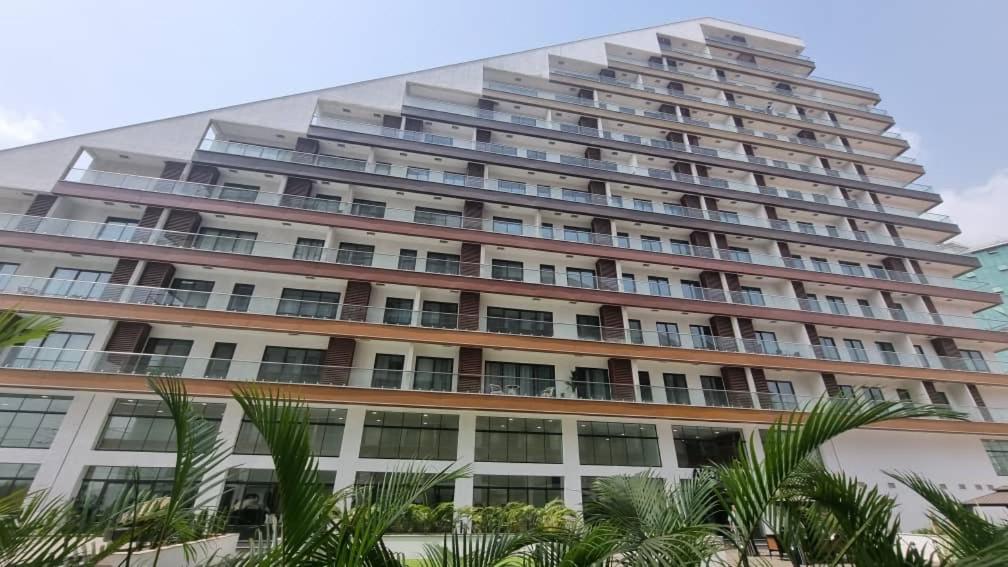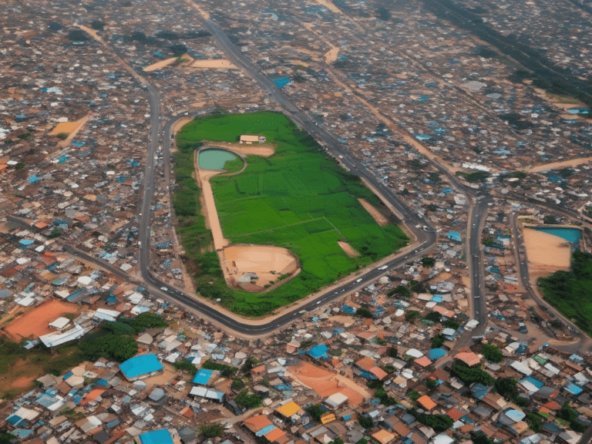While real estate markets struggle in the developed world, Ghana remains a hotbed of opportunity.
If you miss the red-hot real estate deals of ten years ago, take heart. Those kinds of deals may be few and far between in your country…but in Ghana, they are still plentiful.
Ghana, an English-speaking West African nation endowed with a wealth of natural resources, has witnessed significant economic growth and stability in recent years. With a burgeoning middle class, political stability, and favorable government policies, the country has emerged as an attractive real estate market for foreign investors.
“Investors who find themselves fighting over deals with diminishing yields in their home countries are flocking to Ghana,” said Benjamin K. Nyonyo, CEO of the Alora Group, a Ghanaian luxury multifamily developer. “Return profiles of 20-25% are still very common here, whereas they have all but dried up in the property markets of the developed world.”
Let’s explore the factors that have contributed to this booming real estate sector.
Economic Growth and Stability
Ghana’s economy has experienced steady growth, with the World Bank classifying it as a lower-middle-income country. The nation has successfully navigated through political and economic reforms, making it one of the most stable countries in the region.
“Foreign investors perceive Ghana as a safe and secure environment to invest in,” Nyonyo said, “particularly when compared to other countries in the region with higher levels of risk.”
Rapid Urbanization and Rising Middle Class
Ghana is undergoing rapid urbanization, with its urban population growing at a rate of 3.6% per year, according to the World Bank. This rapid growth has resulted in an increasing demand for housing and infrastructure, particularly in major cities such as Accra and Kumasi.
Furthermore, the growing middle class with higher disposable incomes has led to a surge in demand for high-quality residential and commercial properties. In 2021, Ghana had an estimated deficit of over 1.7 million homes. With the World Bank predicting Ghana’s population to grow 2.2% year over year, the market is expected to heat up even more.
“The demand for both affordable and luxury housing is at an all-time high,” Nyonyo said, “and there just isn’t enough property to meet the demand. We’re building as fast as we can to meet the demand.”
Favorable Government Policies
The Ghanaian government has implemented policies to attract foreign investment and boost the economy. The country’s investment-friendly climate is evidenced by its relatively low tax rates, repatriation of profits, and access to land for foreigners.
The government has also established the Ghana Investment Promotion Centre (GIPC) to facilitate and promote investment in the country. These policies create a welcoming environment for foreign investors interested in the real estate market.
Other policies favorable to real estate investment include easy access to debt leverage, income tax rates as low as 1% for affordable housing companies, and the CARES (COVID-19 Alleviation and Revitalization of Enterprises Support) governmental incentives for builders.
Infrastructure Development
Ghana has prioritized infrastructure development, with significant investments in transportation networks, power generation, and telecommunications.
The expansion of road networks, the construction of the new Kotoka International Airport Terminal, and the development of the Tema and Takoradi ports have significantly improved connectivity within the country.
These infrastructure developments have further bolstered the attractiveness of the real estate market, as they have opened up new areas for investment and increased the ease of doing business.
“When people arrive for the first time, they are shocked,” Nyonyo said. “They expected a third-world country, but Ghana is rapidly reaching a point where it can stand shoulder-to-shoulder with the developed world.”
Tourism and Hospitality Sector
Ghana’s tourism sector has grown considerably in recent years, making it a key driver of economic growth. Pre-pandemic, Ghana experienced a whopping 19% growth in tourism as it became a focal point of Diaspora pilgrimage and repatriation. Celebrities like Idris Elba, Naomi Campbell, and Anthony Anderson have all made the pilgrimage, shining a bright light on Ghana on the world stage.
The country is renowned for its rich cultural heritage, beautiful beaches, and warm hospitality, attracting visitors from around the world. This growth in tourism has led to an increased demand for accommodation facilities, such as hotels, resorts, and serviced apartments, presenting an opportunity for real estate investors to cater to this burgeoning market.
“Much of what we build is short-term and vacation housing,” Nyonyo said. “It books up almost immediately. We really can’t build fast enough.”
With these factors in place, Ghana offers a promising investment landscape for those looking to capitalize on the country’s thriving real estate market. In addition to potentially generating attractive returns, investing in Ghana’s real estate market can also contribute to the nation’s broader economic development.
“It’s a win-win proposition for everyone,” Nyonyo said. “We win as a business, our investors win, the residents of our properties win…and Ghana wins.”
Source: Businessinsider Africa





